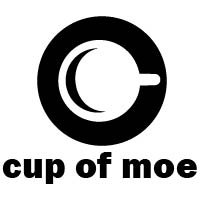We may earn money or products from the companies mentioned in this post.
The master of quirk, Wes Anderson, returns to cinemas with the ever-so delightful “The Grand Budapest Hotel.” From a quick glance at the cast list, it’s evident that Anderson called upon his usual comrades, and moreover the sheer abundance of talent begs the question who isn’t in the film. Featuring a cartoonish style similar to 2012’s “Moonrise Kingdom,” Anderson’s most recent flick offers much the same storytelling, unbelievably wonderful acting, and the director’s unique lens while peppering the superficially frivolous tale with thoughtful, contemplative notes.
“The Grand Budapest Hotel” starts with a young girl visiting a memorial of “The Author.” She opens a book he penned, and proceeds to read about the Grand Budapest Hotel. The Author (Jude Law) describes a trip to the hotel, situated in the Republic of Zubrowka. Once a monument representing wealth, the hotel has fallen into shabbiness, laid waste by war and a stifled economy. During his stay, The Author meets Mr. Moustafa (F. Murray Abraham), the hotel’s owner, who recounts how he became the proprietor of the once fine establishment.
And so begins the journey of flashbacks, a series of anecdotes connected through meticulously intertwined filaments. At the conclusion of one act, a progressive layer is shed, plunking further into the meaty heart of the narrative. Action follows Monsieur Gustave H. (Ralph Fiennes), the proud, cologne-doused concierge of the Grand Budapest Hotel. He’s accompanied by Zero (Tony Revolori), the faithful lobby boy. Gustave H. happens to maintain a habit of sleeping with elderly female patrons of the hotel, and the death of one such companion, Madame D. (Tilda Swinton) results in a chaotic, winding mystery.
Familiarity with Wes Anderson flicks lends the knowledge that his works often border on live-action cartoons. The execution of “The Grand Budapest Hotel” proves no exception, though it does differ from past projects. Exterior shots of the hotel feature miniature models, a departure from overabundant CGI which populates nearly every current film. It not only serves as a refreshment, but helps lend “The Grand Budapest Hotel” a cake-like appearance, no doubt encouraged by the plethora of pastels bursting from the screen.
However under the colorful veneer are darker, brooding tones. These become more apparent during the finale, which develops into an onslaught of tragedy, clashing with the seemingly bubbly first mood. Interspersed in the film are startlingly violent scenes during which Anderson admirably manages to maintain a lighthearted comedy. Like the overarching plot, Gustave H. mimics the idea of character complexity, as beneath the well-plumed concierge is a genuinely compassionate hero.
“The Grand Budapest Hotel” shatters the cheerful tone in the final moments, which is precisely why it may be Anderson’s best work to date. While applying his signature style, Anderson crafts a delicate story and intricate characters that provoke viewer emotion. While “Fantastic Mr. Fox” and “Moonrise Kingdom” were enjoyable tales, “The Grand Budapest Hotel” more closely imitates the quality of the written word which allows reader investment. There’s increased character depth, and Anderson’s usual triviality and the goofy appearance contrast with the heartbreaking conclusion. Overall, it’s a progressively effective tactic which highlights the depth of Gustave as well as the general narrative.
Further benefiting “The Grand Budapest Hotel” is excellent acting. Often such star-studded casts suffer from sheer talent. Seeing seasoned actors worthy of box-office headliners Bill Murray and Owen Wilson in bit parts feels strange. However, their minuscule roles actually befit the bill, as cramming too many veterans into one show would degrade the quality. Ironically, what makes “The Grand Budapest Hotel” so grand serves as the sole blemish across an otherwise pristine façade: the solemnity. It’s jarring, enough to slap the jovial grin off your face. That being said, the concluding remarks restore the pleasant smirk elicited by the majority of the flick. Ultimately, “The Grand Budapest Hotel” is a brilliantly acted, stylish, wholly unique film that will leave you in quiet contemplation well after you’ve shuffled out of the theater. It’s a testament to the power of storytelling in film just as much as Anderson’s directional prowess.
This post may contain affiliate links. We are a participant in affiliate programs such as the Amazon Services LLC Associates Program, an affiliate advertising program designed to provide a means for us to earn fees by linking to Amazon.com and affiliated sites. However, all products are thoroughly tested and reviews are honest and unbiased.

